- Home
- Lisa Kleypas
Love in the Afternoon Page 11
Love in the Afternoon Read online
Page 11
“Please come home and find me . . .”
In the past he had wondered if he were incapable of love. None of his love affairs had ever lasted more than a matter of months, and although they had blazed on a physical level, they had never transcended that. Ultimately no particular woman had ever seemed all that different from the rest.
Until those letters. The sentences had looped around him with a spirit so artless and adorable, he had loved it, loved her, immediately.
His thumb moved over the parchment as if it were sensitive living skin. “Mark my words, Audrey—I’m going to marry the woman who wrote this letter.”
“I am marking your words,” she assured him. “We’ll see if you live up to them.”
The London season would last until August, when Parliament ended and the aristocracy would retire to their country estates. There they would hunt, shoot, and indulge in Friday-to-Monday amusements. While in town, Christopher would sell his army commission and meet with his grandfather to discuss his new responsibilities as the heir of Riverton. He would also renew acquaintances with old friends and spend time with some men from his regiment.
And most importantly, he would find Prudence.
Christopher was uncertain how to approach her, after the way she had broken off their correspondence.
It was his fault. He had declared himself too early. He had been too impetuous.
No doubt Prudence had been wise to break off their communications. She was a gently bred young woman. Serious courtship had to be approached with patience and moderation.
If that was what Prudence wanted of him, she would have it.
He arranged for a suite of rooms at the Rutledge, an elegant hotel favored by European royalty, American entrepreneurs, and British aristocrats who did not maintain town residences. The Rutledge was unparalleled in comfort and luxury, and was arguably worth the exorbitant price of lodging there. As Christopher checked into the hotel and conversed with the concierge, he remarked on a portrait that hung over the marble mantel in the lobby. The subject was a singularly beautiful woman with mahogany-colored hair and striking blue eyes.
“That is a portrait of Mrs. Rutledge, sir,” the concierge said with a touch of fond pride. “A beauty, is she not? A better, kinder lady could not be found anywhere.”
Christopher regarded the portrait with casual interest. He recalled that Amelia Hathaway had said one of her sisters had married Harry Rutledge, the owner of the hotel. “Then Mrs. Rutledge is one of the Hathaway sisters of Hampshire?”
“Just so, sir.”
That had brought a quizzical smile to Christopher’s lips. Harry Rutledge, being a wealthy and well-connected man, could have had any woman he wanted. What madness had inspired him to marry into such a family? It was the eyes, Christopher decided, looking closer, unwillingly fascinated. Hathaway blue, heavily lashed. Exactly like Beatrix’s.
The day after Christopher took up residence in the Rutledge, invitations flooded in. Balls, soirees, dinners, musical evenings . . . even a summons to dine at Buckingham Palace, where the composer Johann Strauss and his orchestra would play.
After a few inquiries, Christopher accepted an invitation to a private ball that, it was confirmed, Miss Prudence Mercer and her mother had consented to attend. The ball was held at a Mayfair mansion, built on a grand scale in the Italianate style, with an extensive outer forecourt and a central balconied hall that rose three full stories. Populated by aristocrats, foreign diplomats, and celebrated artists in various fields, the ball was a glittering display of wealth and social prominence.
The crowded atmosphere engendered a feeling of vague panic in Christopher’s chest. Battening down the anxiety, he went to exchange pleasantries with the hosts. Although he would have preferred to wear civilian attire, he was obliged to wear his dress uniform of rifle green and black, with epaulettes of worsted crescents at the shoulders. As his commission had not yet been sold, it would have caused much comment and disapproval had he not worn the uniform. Worse, he was also obliged to wear all the medals that had been bestowed on him—to leave one off would have been in bad form. The medals had been intended as badges of honor. To Christopher, they represented events he longed to forget.
There were other officers in their various uniforms, scarlet or black trimmed with gold. The attention they garnered, especially from women, only increased Christopher’s unease.
He searched for Prudence, but she wasn’t in the parlor or drawing room. Minute after painstaking minute he made his way through the crowd, stopping frequently as he was recognized by an acquaintance and forced to make conversation.
Where the devil was Prudence?
“. . . you could pick me out of a crowd blindfolded. Simply follow the scent of scorched stockings.”
The thought brought a faint smile to his lips.
Restless and full of wanting, he went into the ballroom. His heartbeat had lodged in the base of his throat.
His breath fractured as he saw her.
Prudence was even more beautiful than he had remembered. She wore a pink gown with lace-trimmed ruffles, her hands tucked into little white gloves. Having just concluded a dance, she stood chatting with an admirer, her expression serene.
Christopher felt as if he had traveled a million miles to reach her. The extent of his own need stunned him. The sight of her, along with the luminous echo of her words, gave him a sense of something he had not felt for a long time.
Hope.
As Christopher reached her, Prudence turned and looked up at him. Her clear green eyes widened, and she laughed with incredulous delight. “My dear Captain Phelan.” She extended her gloved hand, and he bent over it and closed his eyes briefly. Her hand in his.
How long he had waited for this moment. How he had dreamed of it.
“As dashing as ever.” Prudence smiled at him. “More so, actually. How does it feel to have so many medals pinned to one’s chest?”
“Heavy,” he said, and she laughed.
“I had despaired of ever seeing you . . .”
Thinking at first that she was referring to the Crimea, Christopher felt a thrill of heat.
But she continued, “. . . since you’ve been unforgivably elusive upon returning to England.” She curved her lips in a provocative smile. “But of course you knew that would only make you more sought after.”
“Believe me,” he said, “it is not my wish to be sought after.”
“You are, however. Every host and hostess in London would love to claim you as a guest.” A delicate giggle escaped her. “And every girl wants to marry you.”
He wanted to hold her. He wanted to bury his face in her hair. “I may not be fit to marry.”
“La, of course you are. You’re a national hero and the heir to Riverton. A man can scarcely be more fit than that.”
Christopher stared into her beautiful, fine-featured face, at the gleam of her pearly teeth. She was talking to him as she always had, flirtatious, light, teasing.
“The inheritance of Riverton is hardly a foregone conclusion,” he told her. “My grandfather could leave it to one of my cousins.”
“After the way you distinguished yourself in the Crimea? I doubt that.” She smiled at him. “What moved you to finally make your appearance in society?”
He replied in a low voice. “I followed my lodestar.”
“Your . . .” Prudence hesitated and smiled. “Oh, yes. I remember.”
But something about that hesitation bothered him.
The hot, joyous urgency began to fade.
No doubt it was unreasonable of him to expect Prudence to remember everything. Christopher had read her letters a thousand times, until every word had been permanently engraved on his soul. But he could hardly expect that she would have done the same. Her life had gone on much the same. His had changed in every regard.
“Do you still like to dance, Captain?” she asked, her long lashes sweeping over vivid green eyes.
“With you as a partner, yes.�
�� He proffered his arm, and she took it without hesitation.
They danced. The woman he loved was in his arms.
It should have been the finest night of his life. But in a matter of minutes he began to realize that the long-awaited relief was no more substantial than a bridge made of smoke.
Something was wrong.
Something wasn’t real.
Chapter Thirteen
In the weeks that followed, Christopher frequently recalled what Audrey had said about Prudence, that there was nothing beneath the layers of artifice. But there had to be. He hadn’t imagined those letters. Someone had written them.
He had asked Prudence early on about the last letter she had written . . . “I’m not who you think I am” . . . about what she had meant, and why she had stopped corresponding with him.
Prudence had turned red and looked awkward, so different from her usual fetching blushes. It was the first sign of real emotion he had seen in her. “I . . . I suppose I wrote that because . . . I was embarrassed, you see.”
“Why?” Christopher had asked tenderly, drawing her farther into the shadowed corner of a balcony terrace. He had touched her upper arms with his gloved hands, exerting the faintest of pressures to bring her closer. “I adored the things you wrote.” Longing pressed against his heart and made his pulse unsteady. “When you stopped . . . I would have gone mad, except . . . you asked me to come find you.”
“Oh, yes, so I did. I suppose . . . I was alarmed by how I had behaved, writing such silly things . . .”
He eased her closer, every movement careful, as if she were infinitely fragile. His mouth pressed against the thin, delicate skin of her temple. “Pru . . . I dreamed of holding you like this . . . all those nights . . .”
Her arms slid around his neck, and her head tipped back naturally. He kissed her, his mouth gentle and searching. She responded at once, her lips parting softly. It was a lovely kiss. But it did nothing to satisfy him, nothing to ease the angry ache of need. It seemed that his dreams of kissing Prudence had somehow eclipsed reality.
Dreams had a way of doing that.
Prudence turned her face aside with a discomfited laugh. “You’re very eager.”
“Forgive me.” Christopher released her at once. She stayed close to him, the floral scent of her perfume thickening the air around them. He kept his hands on her, his palms curving around her shoulders. He kept expecting to feel something . . . but the region around his heart was locked in ice.
Somehow he had thought . . . but that was unreasonable. No woman on earth could have fulfilled such expectations.
For the duration of the season, Christopher sought out Prudence, meeting her at dances and dinners, taking her and Mrs. Mercer on carriage drives, scenic walks, and to art and museum exhibits.
There was little that Christopher could fault in Prudence. She was beautiful and charming. She didn’t ask uncomfortable questions. In fact, she rarely asked personal questions of him at all. She evinced no interest in the war or the battles he had fought, only in his medals. He wondered if she thought of them as anything more than shiny decorations.
They had the same bland and pleasant conversations, spiced with gossip, that Christopher had had a thousand times before, with other women, during other seasons in London. And that had always been enough for him.
He wished to hell it were enough now.
He had thought . . . hoped . . . that Prudence cared for him in some way. But there was no sign of that now, no tenderness, no trace of the woman who had written “I carry thoughts of you like my own personal constellation . . .”
And he loved her so desperately, the Prudence of the letters. Where was she? Why was she hiding from him?
His dreams led him into dark forests, where he searched through bramble and bracken, pushing through the narrow spaces between the trees as he followed the pale form of a woman. She was always just ahead of him, always out of reach. He woke gasping and enraged, his hands clutching on emptiness.
During the days, Christopher kept his business appointments and social engagements. So many tiny, overstuffed, overdecorated rooms. So much pointless conversation. So many events of no consequence. He could not fathom that he had once enjoyed it all. And he was appalled to find himself remembering moments in the Crimea with something like nostalgia, actually yearning for the brief times when he had felt fully alive.
Even with the enemy in battle he had felt some form of connection, in their efforts to understand and reach and kill each other. But with these patricians trussed in elegant clothes and brittle sophistication, he no longer felt kinship or liking. He knew himself to be different. And he knew they sensed it as well.
Christopher comprehended just how desperate he was for something or someone familiar, when the prospect of visiting his grandfather was actually appealing.
Lord Annandale had always been a stern and intimidating grandparent, never one to spare his withering comments. None of Annandale’s grandchildren, including the cousin who would someday inherit the earldom, had ever pleased the demanding old bastard. Except for John, of course. Christopher had deliberately gone the other way.
Christopher approached his grandfather with a mixture of dread and reluctant compassion, knowing that the old man must have been devastated by John’s death.
Upon arriving at Annandale’s luxuriously appointed London house, Christopher was shown to the library, where a fire had been lit in the hearth despite the fact that it was the height of summer.
“Good God, Grandfather,” he said, nearly recoiling at the blast of heat as he entered the library. “You’ll have us braised like a pair of game hens.” Striding to the window, he flung it open and drew in a breath of outside air. “You could easily heat yourself with a walk out-of-doors.”
His grandfather scowled at him from a chair beside the hearth. “The doctor has advised against outside air. I would advise you to negotiate your inheritance before you try to finish me off.”
“There’s nothing to negotiate. Leave me whatever you wish—or nothing, if it pleases you.”
“Manipulative as always,” Annandale muttered. “You assume I’ll do the reverse of whatever you say.”
Christopher smiled and shrugged out of his coat. He tossed it to a nearby chair as he approached his grandfather. He went to shake his hand, enclosing the frail and cold fingers in his own warm grasp. “Hello, sir. You’re looking well.”
“I am not well,” Annandale retorted. “I’m old. Navigating life with this body is like trying to sail a shipwreck.”
Taking the other chair, Christopher studied his grandfather. There was a new delicacy about Annandale, his skin like swaths of crumpled silk laid over an iron frame. The eyes, however, were the same, bright and piercing. And his brows, in defiance of the snowy whiteness of his hair, were the same thick black as ever.
“I’ve missed you,” Christopher commented in a tone of mild surprise. “Though I can’t decide why. It must be the glare—it brings me back to my childhood.”
“You were ever a hellion,” Annandale informed him, “and selfish to the bone. When I read Russell’s reports of your battlefield heroics, I was certain they had mistaken you for someone else.”
Christopher grinned. “If I was heroic, it was purely accidental. I was only trying to save my own skin.”
A rumble of amusement came from the old man’s throat before he could prevent it. His brows lowered again. “You conducted yourself with honor, it seems. There is talk of a knighthood being bestowed on you. To that end, you might try being receptive to the queen’s invitations. Your refusal to stay in London upon your return from the Crimea was not well regarded.”
Christopher gave him a baleful glance. “I don’t want to entertain people like some trained monkey. I’m no different from thousands of other men who did what they were supposed to do.”
“Such modesty is new for you,” his grandfather observed idly. “Is it genuine, or merely for my benefit?”
Remaining
morosely silent, Christopher tugged irritably at his cravat, untied and unwound it, and let it hang on either side of his neck. When that didn’t serve to cool him, he went to the open window.
He looked down at the street. It was crowded and quarrelsome—people lived out in public in the warmer months—sitting or standing in doorways, eating, drinking, and talking while vehicles and hooves stirred up hot fetid dust. Christopher’s attention was caught by a dog that sat in the back of a little cart as his master guided a swaybacked pony along the thoroughfare. Thinking of Albert, he was wrenched with remorse. He wished he had brought the dog to London. But no, the hubbub and the confinement would have driven poor Albert mad. He was better off in the country.
He dragged his attention back to his grandfather, realizing that he was saying something.
“. . . have reconsidered the question of your inheritance. I had originally set aside very little for you. The lion’s share was, of course, for your brother. If there was ever a man who deserved Riverton more than John Phelan, I have not met him.”
“Agreed,” Christopher said quietly.
“But now he is gone with no heir, which leaves only you. And though your character has shown signs of improvement, I’m not convinced that you’re worthy of Riverton.”
“Neither am I.” Christopher paused. “I want nothing that you had originally intended for John.”
“I will tell you what you will have, regardless of what you want.” Annandale’s tone was firm, but not unkind. “You have responsibilities, my boy, and they are not to be dismissed or evaded. But before I lay out your course, I want to ask something.”
Christopher regarded him without expression. “Yes, sir.”
“Why did you fight as you did? Why did you risk death so often? Did you do it for the good of the country?”
Christopher snorted in disgust. “The war wasn’t for the good of the country. It was for the benefit of private mercantile interests, and fueled by the conceit of politicians.”
“You fought for the glory and the medals, then?”
“Hardly.”
“Then why?”

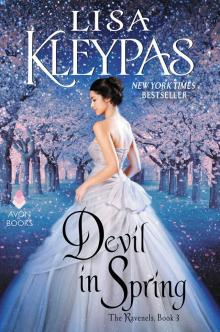 Devil in Spring
Devil in Spring Sugar Daddy
Sugar Daddy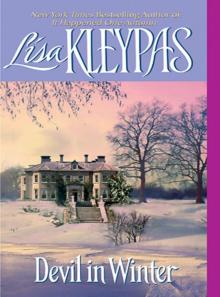 Devil in Winter
Devil in Winter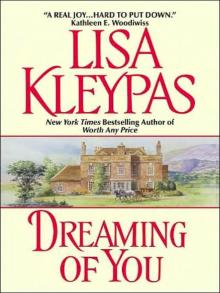 Dreaming of You
Dreaming of You Christmas Eve at Friday Harbor
Christmas Eve at Friday Harbor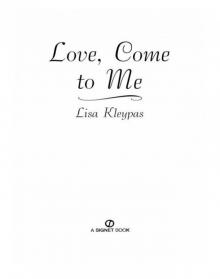 Love, Come to Me
Love, Come to Me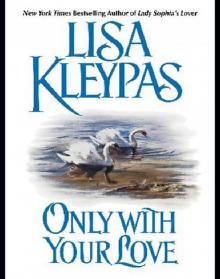 Only With Your Love
Only With Your Love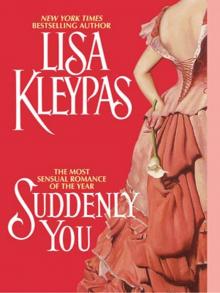 Suddenly You
Suddenly You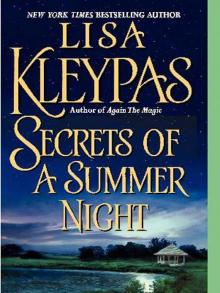 Secrets of a Summer Night
Secrets of a Summer Night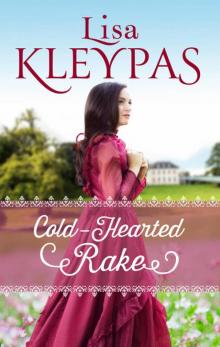 Cold-Hearted Rake
Cold-Hearted Rake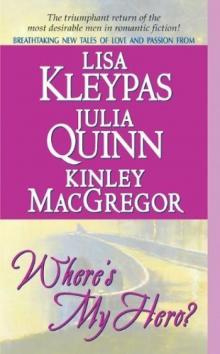 Where's My Hero?
Where's My Hero? Gifts of Love
Gifts of Love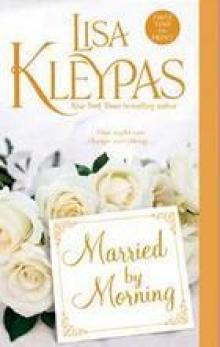 Married by Morning
Married by Morning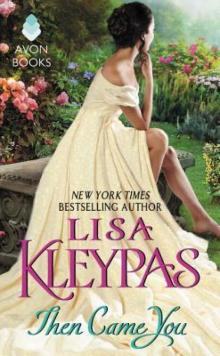 Then Came You
Then Came You Wish List
Wish List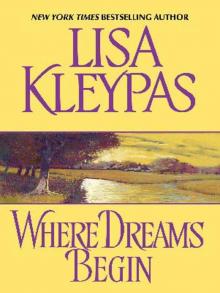 Where Dreams Begin
Where Dreams Begin A Historical Christmas Present
A Historical Christmas Present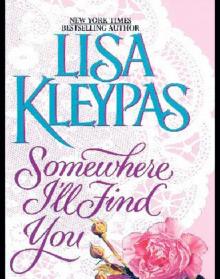 Somewhere I'll Find You
Somewhere I'll Find You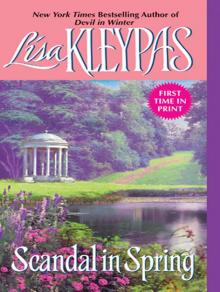 Scandal in Spring
Scandal in Spring Someone to Watch Over Me
Someone to Watch Over Me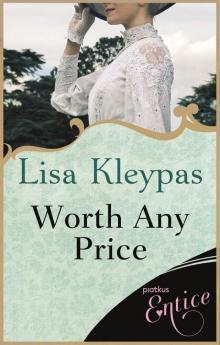 Worth Any Price
Worth Any Price Prince of Dreams
Prince of Dreams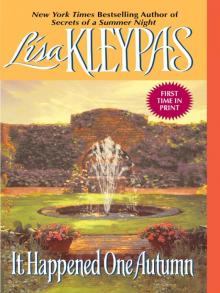 It Happened One Autumn
It Happened One Autumn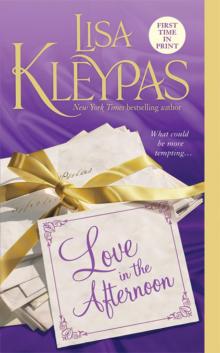 Love in the Afternoon
Love in the Afternoon Devil's Daughter
Devil's Daughter A Wallflower Christmas
A Wallflower Christmas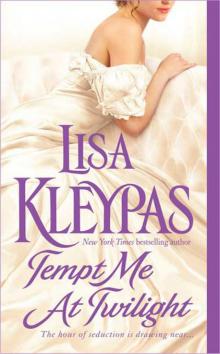 Tempt Me at Twilight
Tempt Me at Twilight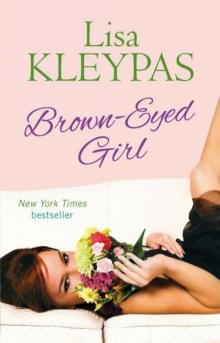 Brown-Eyed Girl
Brown-Eyed Girl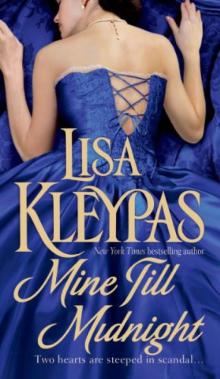 Mine Till Midnight
Mine Till Midnight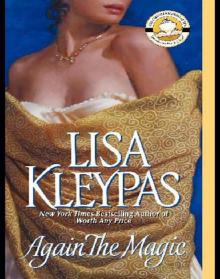 Again the Magic
Again the Magic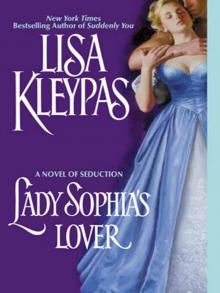 Lady Sophia's Lover
Lady Sophia's Lover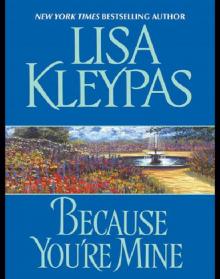 Because You're Mine
Because You're Mine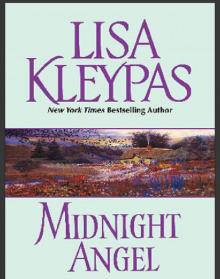 Midnight Angel
Midnight Angel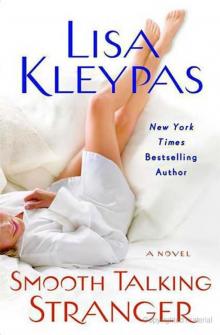 Smooth-Talking Stranger
Smooth-Talking Stranger Blue-Eyed Devil
Blue-Eyed Devil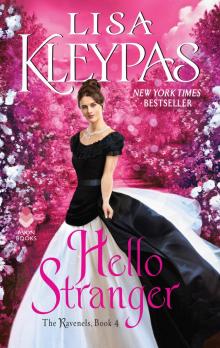 Hello Stranger
Hello Stranger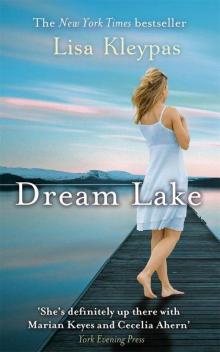 Dream Lake
Dream Lake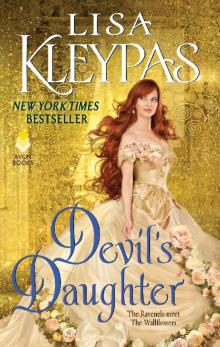 Devil's Daughter: The Ravenels Meet the Wallflowers
Devil's Daughter: The Ravenels Meet the Wallflowers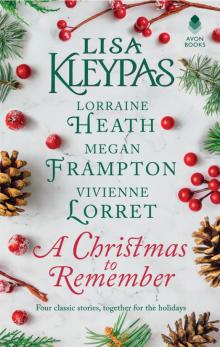 A Christmas to Remember
A Christmas to Remember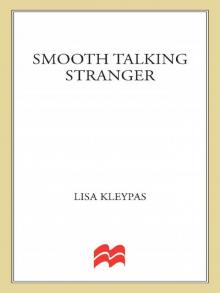 Smooth Talking Stranger
Smooth Talking Stranger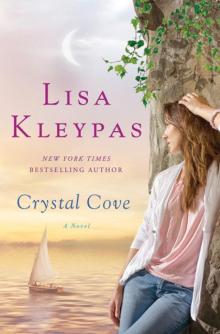 Crystal Cove
Crystal Cove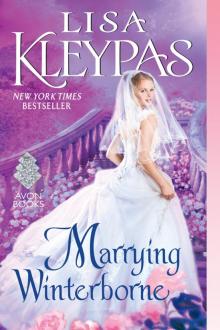 Marrying Winterborne
Marrying Winterborne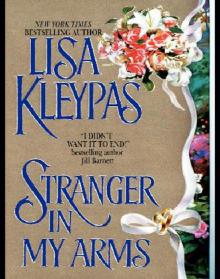 Stranger in My Arms
Stranger in My Arms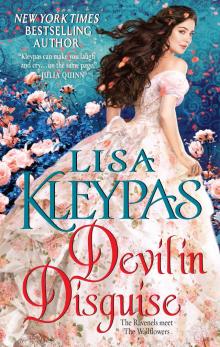 Devil in Disguise
Devil in Disguise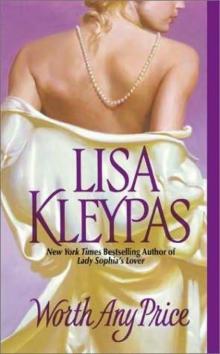 Worth Any Price bsr-3
Worth Any Price bsr-3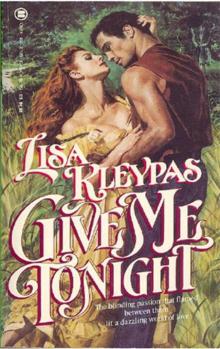 Give Me Tonight
Give Me Tonight Rainshadow Road fh-2
Rainshadow Road fh-2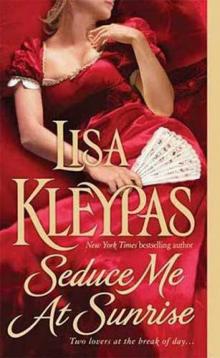 Seduce Me At Sunrise
Seduce Me At Sunrise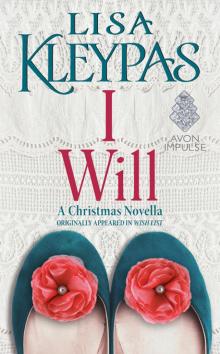 I Will
I Will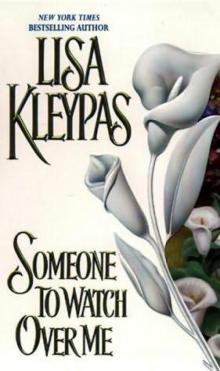 Someone to Watch Over Me bsr-1
Someone to Watch Over Me bsr-1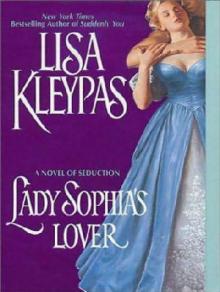 Lady Sophias Lover bsr-2
Lady Sophias Lover bsr-2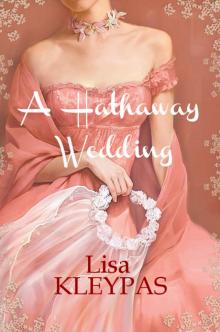 A Hathaway Wedding
A Hathaway Wedding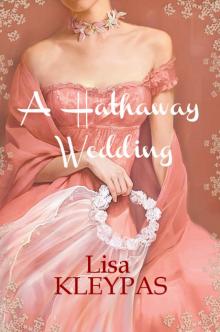 A Hathaway Wedding (Hathaways Bk2.5)
A Hathaway Wedding (Hathaways Bk2.5)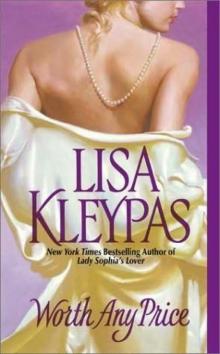 Worth Any Price - Bow Street 3
Worth Any Price - Bow Street 3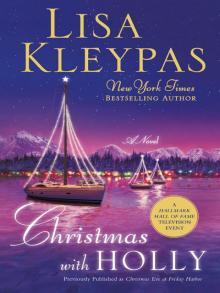 Christmas with Holly
Christmas with Holly